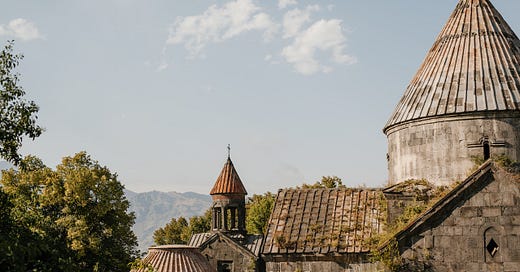Thomas Hood was an English poet known for his humorous poetry and puns. He published a comedy magazine titled Hood’s Own, or Laughter from Year to Year. He did also write a number of introspective poems, including “Silence.” “Silence” is an Italian sonnet, so although it is fourteen lines like its cousin the English sonnet, the turn comes after eight lines rather than twelve.
"Silence" There is a silence where hath been no sound, There is a silence where no sound may be, In the cold grave—under the deep deep sea, Or in the wide desert where no life is found, Which hath been mute, and still must sleep profound; No voice is hush’d—no life treads silently, But clouds and cloudy shadows wander free, That never spoke, over the idle ground: But in green ruins, in the desolate walls Of antique palaces, where Man hath been, Though the dun fox, or wild hyena, calls, And owls, that flit continually between, Shriek to the echo, and the low winds moan, There the true Silence is, self-conscious and alone.
I love when poems take something we all know and ask us to think just a little harder about that sort of thing. In this case, silence. The two parts of our sonnet identify two different types of silence. The first eight lines paint the picture of what we might call a physical silence. The absence of sound where neither people nor other life ever existed. Then, the poem turns to another silence. The silence of a place “Man” has abandoned. The poem tells us that although there is more sound (foxes and hyenas call) this is the “true Silence.”
If we take the poet at his word, what is silence? It isn’t the absence of sound. The poem doesn’t give us a strict definition, but it does describe silence as “self conscious and alone.” To avoid equivocation, maybe here we should take a moment to state that the absence of sound is certainly not a bad thing. From here on out, when I say ‘silence’ I don’t mean the absence of sound. Many religions and religious orders have found the absence of sound leads to a relationship with a God that is exact opposite of being “self conscious and alone.”
But just what is that loud, painful state of silence that our poem is describing? The poem isn’t explicit, so you need to provide your own answer. For my money, I think it sounds a lot like the loss of relationship, companionship, friendship. If we were made as communal beings and made for love what could be more silent than to exist after love. Whether it be loss of a parent or a friendship that has run its course, “there the true Silence is.”





